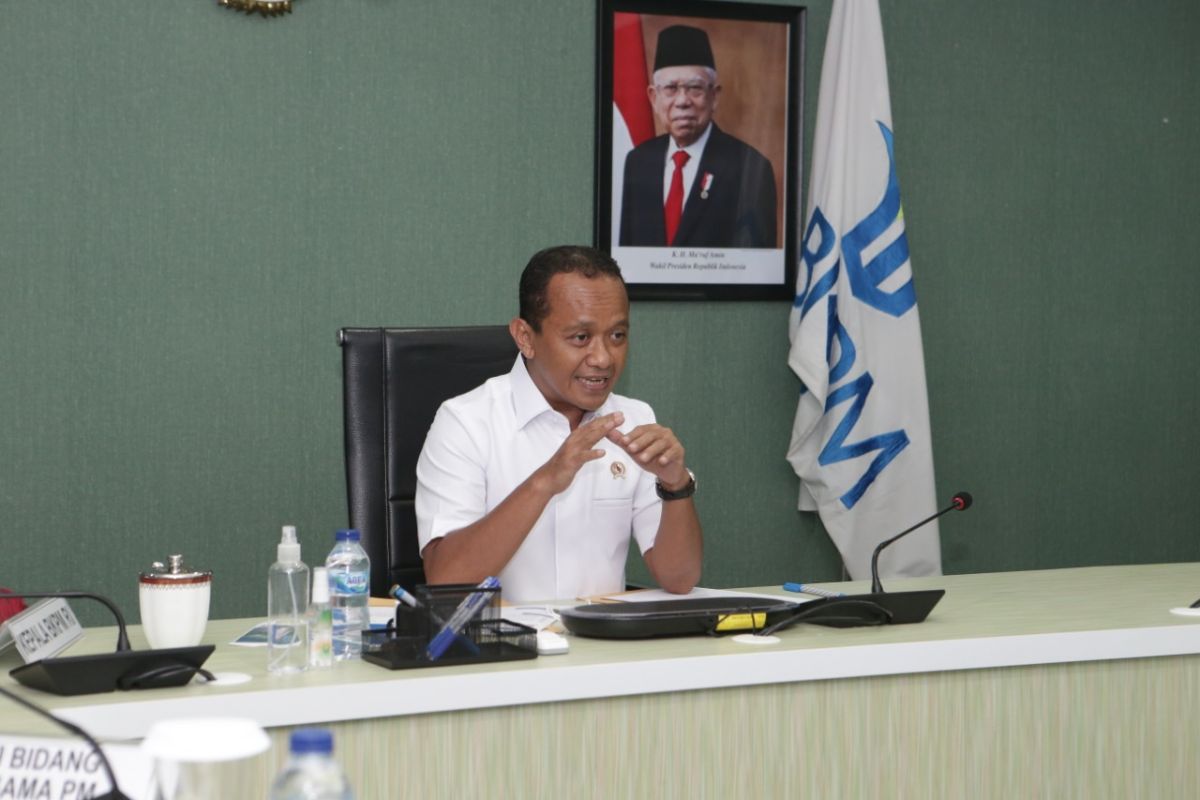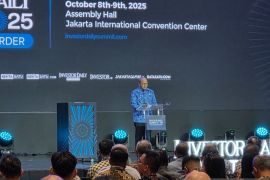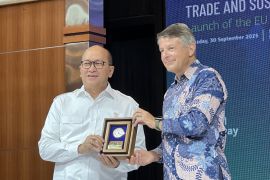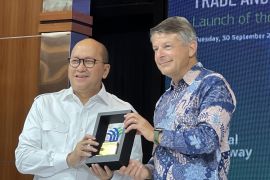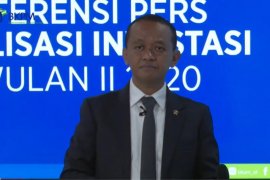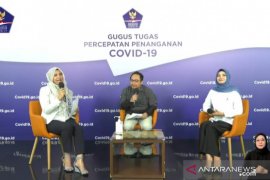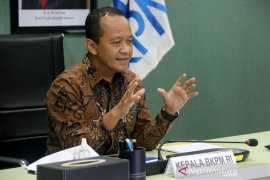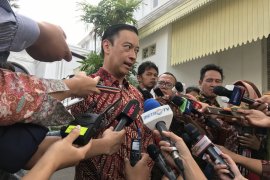College graduates are lacking interest in starting an enterprise, partly because of convoluted business licensing arrangements, he said in a written statement issued in Jakarta on Friday.
"This law guarantees young people to become entrepreneurs, with the facilities provided by this law. (Under the new law) MSEs (Micro and Small Enterprises) only need an NIB (Business Identification Number to operate). Everything is electronic via OSS (Online Single Submission). It (licensing procedure) takes only three hours,” Bahlil said.
He made the remarks at an online Forum Group Discussion (FGD) organized by the Overseas Indonesian Students Association Alliance (PPI-Dunia) on Wednesday (October 14, 2020).
At the discussion, he said the job creation law is motivated by an objective assessment of the situation in Indonesia. The county’s workforce currently totals around 7 million, spread from Aceh to Papua, and workers are looking for jobs.
Moreover, the workforce is expanding by around 2.9 million every year. According to data from the Ministry of Manpower, in the wake of the COVID-19 pandemic, 3.5 million workers have been affected by layoffs (PHK).
Meanwhile, data from the Indonesian Chamber of Commerce and Industry (Kadin) shows around 5 million people have been laid off.
Based on this data, the total number of jobs that need to be generated by the government are around 15 million.
“To provide a solution for these 15 million job seekers, the state must create jobs. However, it is unlikely that all of them will be absorbed through the recruitment of civil servants, state employees, police, and soldiers. The basic concept is that to create jobs, it must go through the private sector. This private sector instrument is investment, because this investment can create jobs,” Bahlil explained.
He also assured Indonesian students that the job creation law supports and protects micro, small and medium enterprises (MSMEs). He said he hoped that college graduates would not only choose to be employees or workers, but also become entrepreneurs and help the government create jobs.
Secretary general of the Ministry of Manpower, Anwar Sanusi, said the job creation law is expected to continue to encourage increased productivity through various trainings according to needs.
Currently, there are around 56.6 percent of unemployed people in the 15 to 24 age group. Meanwhile, those aged 55 years and above make up 29 percent of part-time workers, and people in the 25-34 age group account for 26 percent of all unemployed workers.
"The productivity of the labor force in Indonesia is low, we are still below Malaysia and Laos, even below the average of ASEAN countries," Anwar said.
The job creation law, he noted, protects three types of employees. First, it has provisions for the government to create jobs through investment for people who are not yet working. Second, people who have jobs are offered protection under the new law. And third, the law also ensures workers will remain protected after their jobs are terminated.
At the discussion, coordinator of the Overseas Indonesian Students Association Alliance (PPI-Dunia), Choirul Anam, lauded the openness of the government, observers, and academics in clearly discussing and providing an understanding of the substance of the job creation law and providing constructive input.
“We see that the government wants to encourage economic opportunities and make it easier for various parties to do business. However, on the other hand, it needs to be realized that the job creation law is an integration of various laws, which creates its own complexities from substance, legal perspective, and public interest," Anam said. (INE)
Related news: Job Creation Law supports economic recovery in Indonesia: World Bank
Related news: Job Creation Law to boost economic growth, create job opportunities
EDITED BY INE
Translator: Ade Irma, Azis Kurmala
Editor: Suharto
Copyright © ANTARA 2020
